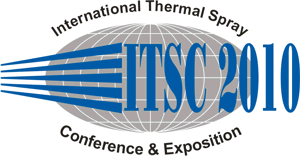
|
| Abstract No.: |
|
Scheduled at:
|
Wednesday, May 05, 2010, Olivia Room 3:00 PM
Gas Turbines 3
|
|
| Title: |
A study on thermal cycle life and electrochemical impedance response of plasma sprayed functionally graded thermal barrier coatings
|
|
| Authors: |
Sreedhar Gosipathala* / Dept. of Metallurgical Engineering & Materials Science,
Indian Institute of Technology Bombay, Maharastra
V. Raya/ Dept. of Metallurgical Engineering & Materials Science, Indian Institute of Technology Bombay, India
|
|
| Abstract: |
Typical commercial thermal barrier coating (TBC) consists of ceramic top coat yttria-stabilized zirconia (YSZ), thermally grown oxide (TGO) which is formed during operation and metallic bond coat (MCrAlY) on super alloy substrate. Thermal cycle life of TBC is limited by the mechanical failures that occur at the TGO/bond coat and TGO/top coat interfaces. The failure is aided by the residual stresses built at these interfaces due to thermal expansion co-efficient mismatch between of the bond coat and ceramic top coat. In order to minimize this problem, functionally graded coatings were under study to gain higher thermal cycle life of TBC.
In the present work, a five layered thermal barrier coating with different proportion of NiCrAlY and YSZ were deposited on to the Inconel-718 substrates using air plasma spray (APS). Specimens were thermally cycled at 1000¢ªC. Each thermal cycle consisted of 10 min reach 1000¢ªC, 50 min soaking and 30 min cooling. Thermally cycled specimens of 200,400,600,800 and 1000 h were characterized using scanning electron microscopy (SEM), energy dispersive X-ray spectroscopy (EDS) and electrochemical impedance spectroscopy (EIS). It is observed that the graded thermal barrier coating was found to withstand 1050 h of thermal cycling. The electrochemical impedance studies showed that the thermally cycled specimens have high polarization resistance due to the formation of TGO.
|
|
